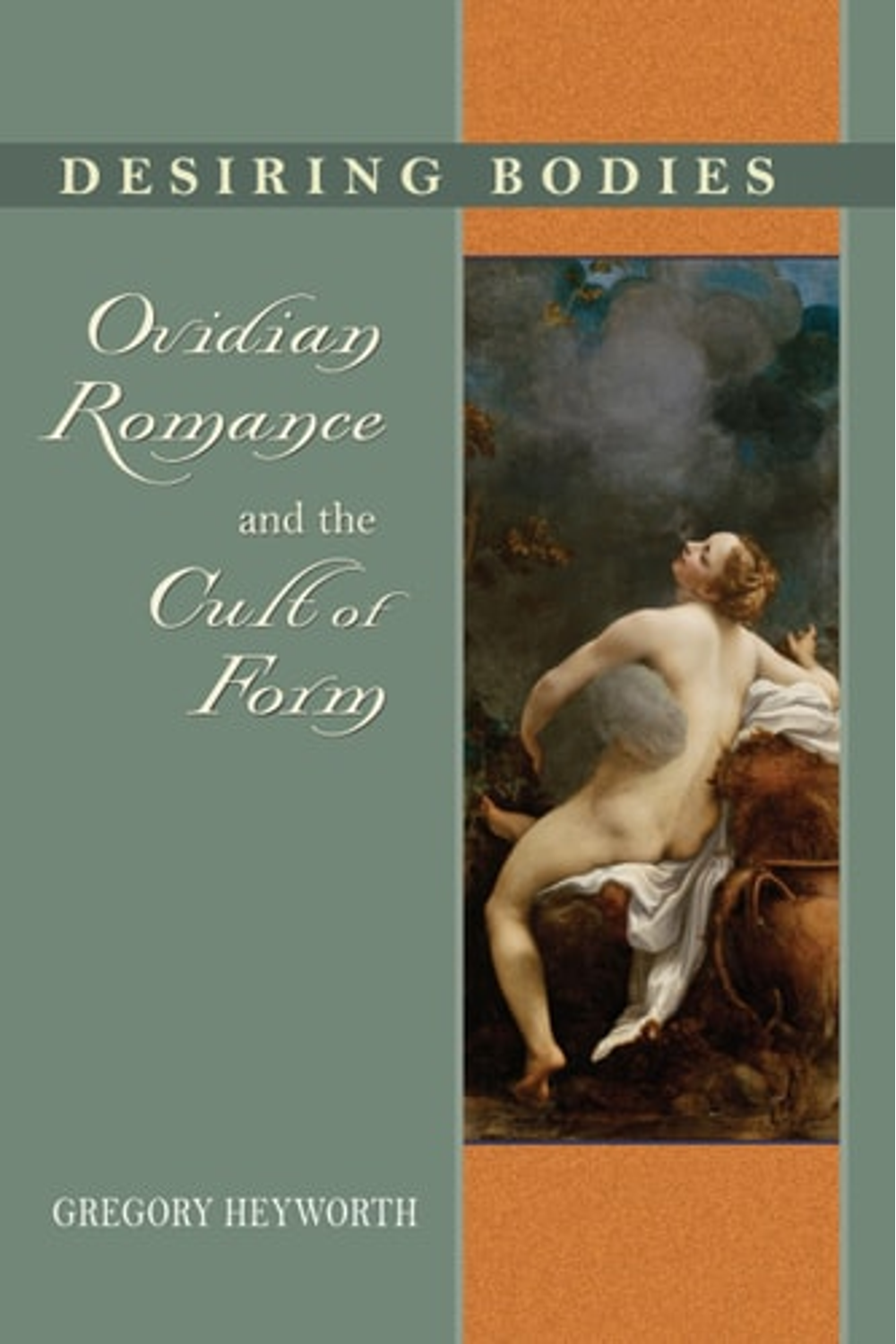Explore the captivating intersection of literature, history, and the human body with Gregory Heyworth’s *Desiring Bodies: Ovidian Romance and the Cult of Form*. This book, praised for its innovative approach, unveils Ovid’s profound influence on medieval and early modern concepts of form, desire, and the body within romance literature. Heyworth analyzes key works from Marie de France to Milton, revealing how Ovidian ideas shaped both literary conventions and socio-political landscapes. By examining the presence and absence of bodies in texts, he explores the interplay between physical form, desire, and the evolving nature of romance, lyric, tragedy, and epic genres. Drawing on social theorists like Kant and Weber, *Desiring Bodies* offers a compelling cultural history that redefines our understanding of Ovidian romance and its lasting legacy on Western thought. For students and scholars of medieval and Renaissance literature, this book provides a fresh perspective and insightful analysis of classic texts.
Desiring Bodies: Ovidian Romance and the Cult of Form
19,70 $
In stock
Gregory Heyworths Desiring Bodies considers the physical body and its relationship to poetic and corporate bodies in the Middle Ages and Renaissance. Beginning in the odd contest between body and form in the first sentence of Ovids protean Metamorphoses, Heyworth identifies these concepts as structuring principles of civic and poetic unity and pursues their consequences as refracted through a series of romances, some typical of the genre, some problematically so.
Bodies, in Ovidian romance, are the objects of human desire to possess, to recover, to form, or to violate. Part 1 examines this desire as both a literal and socio-political phenomenon through readings of Marie de Frances Lais, Chrtien de Troyes Cligs and Perceval, and Chaucers Canterbury Tales, texts variously expressing social, economic, and political culture in romance. In part 2, Heyworth is concerned with missing or absent bodies in Petrarchs Rime sparse, Shakespeares Romeo and Juliet, and Miltons Paradise Lost and the generic rupture they cause in lyric, tragedy, and epic. Throughout, Heyworth draws on social theorists such as Kant, Weber, Simmel, and Elias to explore the connection between social and literary form.
The first comparative, diachronic study of romance form in many years, Desiring Bodies is a persuasive and important cultural history that demonstrates Ovids pervasive influence not only on the poetics but on the politics of the medieval and early modern Western tradition.
| Authors | |
|---|---|
| Binding | |
| Condition | |
| ISBN-10 | 0268031061 |
| ISBN-13 | 9780268031060 |
| Language | |
| Pages | 376 |
| Publisher | |
| Year published | |
| Weight | 506 |
| Edition | First Edition |
| Dewey decimal | 809/.933561 |
Related products
Gender Queer: A Memoir
38,30 $
- Additional information
- Currencies
- USD – United States dollar
- EUR – Euro
- GBP – Pound sterling
- CNY – Chinese yuan
- BRL – Brazilian real
- MXN – Mexican peso
- JPY – Japanese yen
- PHP – Philippine peso
- THB – Thai baht
- PLN – Polish złoty
- CAD – Canadian dollar
- MYR – Malaysian ringgit
- AUD – Australian dollar
- TWD – New Taiwan dollar
- CZK – Czech koruna
- SEK – Swedish krona
- HUF – Hungarian forint
- ILS – Israeli new shekel
- CHF – Swiss franc
- HKD – Hong Kong dollar
- DKK – Danish krone
- SGD – Singapore dollar
- NOK – Norwegian krone
- NZD – New Zealand dollar





